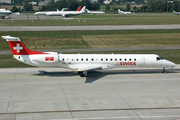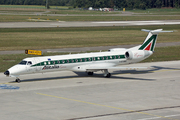Dépêches
Biofuel From Non-Edible Jatropha Plant Proving Its Worth as Aviation Fuel
Dépèche transmise le 8 avril 2011 par PRNewswire
LOS ANGELES, April 8, 2011 /PRNewswire/ -- Business Matchmaking, Inc. has compiled the results of multiple airline tests of oil from the little known non-edible plant Jatropha as a potential substitute for traditional jet fuel with impressive results. The non-profit company specializes in matching small firms with government agencies and major corporations.
Japan Airlines, Air New Zealand, Continental, Brazil's TAM Airlines and most recently the Mexican carrier Interjet, in cooperation with European manufacturer Airbus, were hosts of successful tests and flights relying upon fuel from weed-like Jatropha which grows on land otherwise unusable for farming.
A March 31, 2011 comprehensive report by School of Environmental Studies, funded by Boeing, concluded that "Jatropha can deliver strong environmental and socioeconomic benefits."
The Yale Study used sustainability criteria developed by the Roundtable on Sustainable Biofuels in evaluating actual farming conditions.
Mission NewEnergy, Limited, the largest producer of Jatropha by acreage planted, currently employs more than 140,000 formerly impoverished farmers in India now earning a living cultivating Jatropha without compromising food supply or food pricing. The company is currently distributing product in Europe, and launching its US operations.
James Garton, president of Mission NewEnergy USA said, "We are particularly pleased to learn of repeated testing of Jatropha in aviation with positive results. With the unprecedented challenges facing the airlines as a result of the constant increase in the price of jet fuel, and the global need to accept sustainability as a key to environmental responsibility, the Jatropha solution is timely and efficient."
In addition to civilian aviation, there are studies underway by the military with regard to Jatropha oil. Major General Wilbert Pearson (USAF-Ret), now Chairman of Mission NewEnergy's Advisory Board, concluded that "the military has a huge and continuing need for efficient and affordable fuel and Jatropha appears to meet those standards while also meeting environmental demands."
The United Nation's International Civil Aviation Organization has established the goal of reducing aviation-related carbon-dioxide emissions and the use of renewable fuels. At one point, there was speculation that Ethanol might be appropriate for airplane use, but since it freezes at relatively low altitudes, it is deemed unacceptable for flight.
The study projected greenhouse gas reductions of up to 60 percent from Jatropha-based fuel compared to petroleum-based jet fuel.
CONTACT: Ariel Weeks, +1-310-432-6357,
- 24/04Ibis Styles London Heathrow : l'hôtel géré par un passionné d'aviation pour les passionnés d'aviation (photos + vidéos)
- 23/04 SkyUp renouvelle son partenariat avec Wizz Air
- 23/04 Play : résultats de mars 2024
- 23/04 Les garde-côtes japonais commande trois Airbus H225 supplémentaires
- 23/04 Vueling et Make-A-Wish France signent un partenariat
- 23/04 TUI annonce ses destinations au départ de Deauville pour l'été 2024.
- 23/04 Twin Jet renforce son programme de vols sur la ligne Toulouse/Rennes
- 23/04 Norse Atlantic Airways : résultats du mois de mars 2024
- 23/04 Volotea renforce son offre entre Lille et le Maroc
- 22/04 Finnair a dévoilé son programme de vol pour les saisons hiver 2024 et été 2025
- 22/04 Qatar Airways annonce le lancement de vols à destination de Kinshasa
- 22/04 Vietnam Airlines et CAE prolongent leur accord
- 22/04 Mermoz Academy de Tours commande des Tecnam P-Mentor
- 22/04 Transavia France reçoit son 2e Airbus A320neo
- 20/04 Friedrichshafen 2024 : Blackwing présente un nouveau modèle de son BW650RG
- 20/04 Friedrichshafen 2024 : JMB Aircraft présente son Phoenix
- 19/04 Friedrichshafen 2024 : le projet "Fly To The North"
- 19/04 Friedrichshafen 2024 : Aura Aero présente pour la première fois ses trois appareils
- 19/04 Friedrichshafen 2024 : Duc Hélices présente son hélice Tiger-3
- 19/04 Friedrichshafen 2024 : Splash-in Aviation expose son Pétrel X







